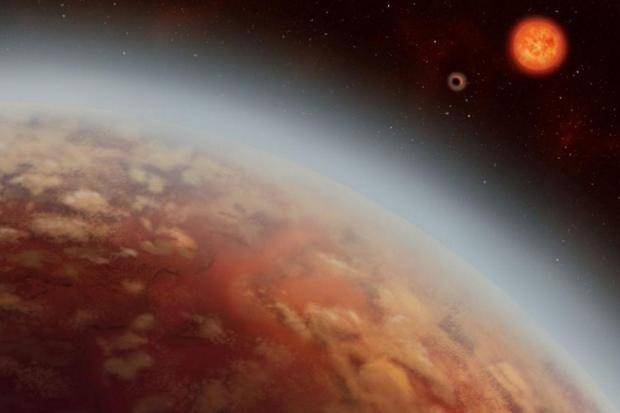According to new research, a distant planet beyond the solar system could have a lot in common with Earth - including the prospect of life.
The faraway exoplanet, which is known as K2-18b, could be a scaled-up form of Earth. The planet orbits inside its star's habitable zone, which implies it could hold fluid water on its surface - a key factor expected to maintain life.

The planet is either for the most part rocky planet with a gaseous atmosphere, much the same as Earth, or a for the most part water planet with a thick layer of ice over it.
Attempting to see if the planet is more similar to a downsized form of Neptune made generally of gas, or a scaled-up adaptation of Earth made for the most part of rock, the scientists used radial velocity measurements of its star, and a machine learning calculator.
The study additionally found that K2-18b even has a neighbor, K2-18c. However, while it likewise seems, by all accounts, to be a super Earth and is nearer to the two planets' star (red-dwarf K2-18, which is found 111 light years from Earth) - it is probably going to be excessively hot, making it impossible to be in the habitable zone. Most likely no aliens here then.
K2-18b will be a prime target for Nasa's James Webb Space telescope, which will launch in 2019.
Nice post follow and upvote @mabhedal for future links.
Thank you! Will do!